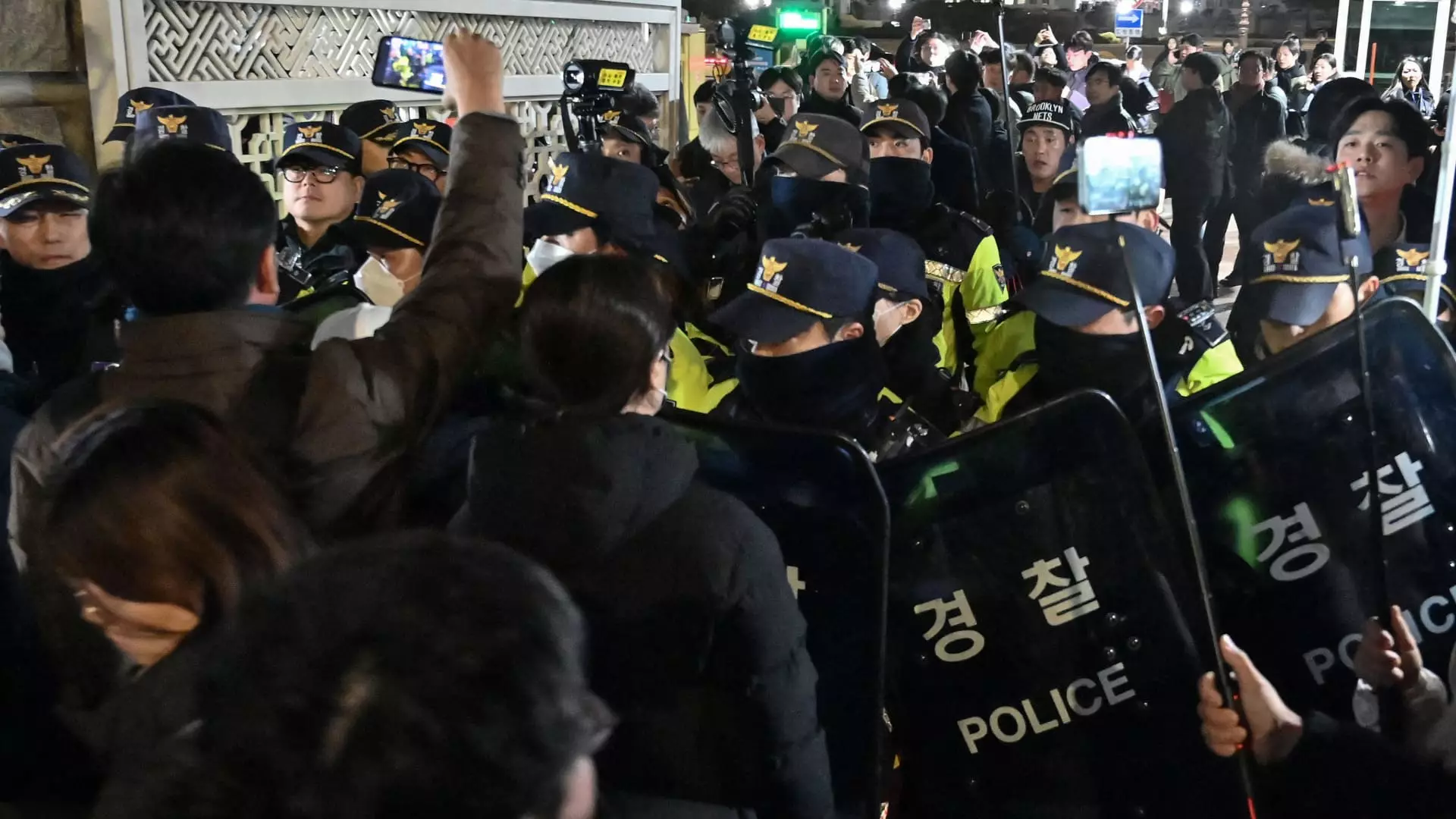On a dramatic Tuesday, the South Korean stock market experienced significant turbulence following President Yoon Suk Yeol’s announcement of martial law. This unprecedented move sparked fears across global markets, as investors reacted to the potential destabilization of the world’s 13th largest economy. The iShares MSCI South Korea ETF, which serves as a benchmark for large and mid-sized companies in the country, plummeted to a staggering 7% before clawing back to a 2.4% loss after the South Korean National Assembly swiftly acted to overturn the president’s decree. This rapid response indicates a highly reactive political landscape where legislative checks can quickly counteract decisions perceived as authoritarian.
Investors in key South Korean corporations faced immediate ramifications. Prominent companies such as Korea Electric Power saw their American Depositary Receipts (ADRs) drop by 5%, while renowned e-commerce player Coupang witnessed a sharp decline of 6%. The negative sentiment extended to other major institutions, including KT Corporation and Posco. Such declines underscore the sensitivity of the South Korean market to political events, particularly when governmental powers are perceived to infringe upon civil liberties and democratic norms. The sell-off reflects a growing unease among investors regarding potential long-term implications for governance and economic stability in South Korea.
President Yoon’s accusation against opposition parties, claiming they sympathize with North Korea, adds another layer of complexity to the political climate. Such rhetoric is not merely an escalation of partisan politics; it invokes fears of national security that could further alienate the populace from the political establishment. The martial law declaration, categorized as a temporary rule by military authorities during emergencies, raises pressing concerns about civil rights and the preservation of democratic processes in South Korea. Legislation prohibiting any acts perceived to “incite social disorder” could lead to significant curtailments of free expression and political dissent. This precarious balance between governance and civil liberties stands at the forefront of public discourse.
As market analysts assess the fallout from Yoon’s actions, the broader implications extend beyond South Korea’s borders. The U.S. dollar surged against the South Korean won, reflecting a retreat to safety amidst rising geopolitical uncertainties. The need for the Korea Exchange to convene an emergency meeting emphasizes the gravity of the situation, with stakeholders keen to explore potential mitigating strategies. Should this crisis evolve, there could be wider repercussions on trade and economic relations, not just regionally, but on a global scale, as investors reevaluate the risk associated with South Korea.
The sudden announcement of martial law by President Yoon Suk Yeol has sent shockwaves through the South Korean markets, raising questions of stability and governance in the country. The market’s rapid response reflects a precarious situation where political actions can have immediate and profound economic consequences. As the nation grapples with its political identity, the coming weeks will be crucial in determining how South Korea navigates through these turbulent waters and whether it can maintain its economic resilience in the face of political uncertainty.

